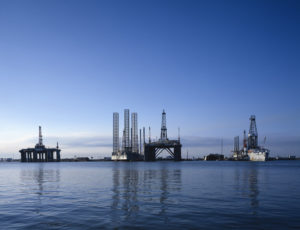
Agency Says Planned Terminal Must Reduce Toxic Air Pollutants By 95 Percent
Austin, TX – The U.S. Environmental Protection Agency yesterday denied a permit for a major offshore oil terminal proposed on the Gulf Coast near Corpus Christi, ruling that the Bluewater Texas terminal would need to reduce its toxic air pollution by about 95 percent.
“We are relieved that EPA listened to the public and decided that this ridiculous project needs pollution controls after all,” said Gabriel Clark-Leach, Attorney for the Environmental Integrity Project, which objected to the permit with a coalition of 15 allied organizations. “EPA’s regulations require marine vessel loading operations—like the Bluewater port—to reduce toxic air pollution by 95 percent. The application of this rule will reduce the amount of pollution the Bluewater terminal – if it is built — will emit by a whopping 18,000 tons each year.”
The Bluewater Texas offshore terminal, proposed in the gulf about 25 miles southeast of Corpus Christi, is designed to handle 1.9 million barrels of crude oil per day from crude oil tankers, which would connect with the port via floating oil hoses.
Bluewater Texas Terminal LLC on May 30, 2019, applied to EPA for a Clean Air Act permit to build a new major offshore oil terminal near Corpus Christi that would export up to 384 million barrels of crude oil per year on large tankers ships.
On November 12, 2020, EPA released a draft air pollution control permit for the terminal that would allow Bluewater to emit almost 19,000 tons per year of smog-forming Volatile Organic Compounds (VOC’s) and 833 tons per year of hazardous air pollutants annually, including 66 tons per year of the carcinogen benzene. To put those numbers in context, the amount of VOC’s this one terminal would have released would have been more than from all 273 industrial sources in the Houston area (Harris County.)
In written comments submitted to EPA on January 11, 2021, the environmental groups argued that EPA must amend the draft permit to require pollution controls that would reduce Bluewater’s emissions of hazardous air pollutants and VOC’s by at least 95 percent. The groups argued that these controls, including vapor recovery and vapor combustion systems, are legally mandated under the Clean Air Act.
They also argued that EPA failed to conduct a required environmental justice analysis, because pollution from the terminal’s onshore and offshore infrastructure in the Corpus Christi area pose risks to minority and lower-income communities.
On Sept. 1, EPA’s Region Six Office in Dallas wrote to Bluewater Texas Terminals LLC asking the company to withdraw its proposed permit and submit a new proposal that would meet the requirements for a reduction in air pollutants. EPA said it agreed with the argument made by the environmental groups that “the proposed project… should be required to reduce Hazardous Air Pollutants emissions by 95 percent.”
The environmental and community groups objecting to the permit were the Environmental Integrity Project, Earthjustice, the Carrizo/Comecrudo Tribe of Texas, Center for Biological Diversity, Clean Economy Coalition of Corpus Christi, Environment Texas, Errol Summerlin, For the Greater Good, Indigenous People of the Coastal Bend, Ingleside on the Bay Coastal Watch Association, Islander Green Team, Public Citizen, Texas Campaign for the Environment, the Sierra Club, and the Surfrider Foundation.
For a copy of EPA’s letter, click here.
For a copy of the comments sent by the 15 environmental groups complaining about the Blue Water Texas terminal permit, click here.
The Environmental Integrity Project is a 20-year-old nonprofit organization, based in Washington, D.C., and Austin, Texas, dedicated to enforcing environmental laws and strengthening policy to protect public health and the environment.
Media contacts: Gabriel Clark-Leach, Environmental Integrity Project (425) 381-0673 or gclark-leach@environmentalintegrity.org
Tom Pelton, Environmental Integrity Project (443) 510-2574 or tpelton@environmentalintegrity.org


